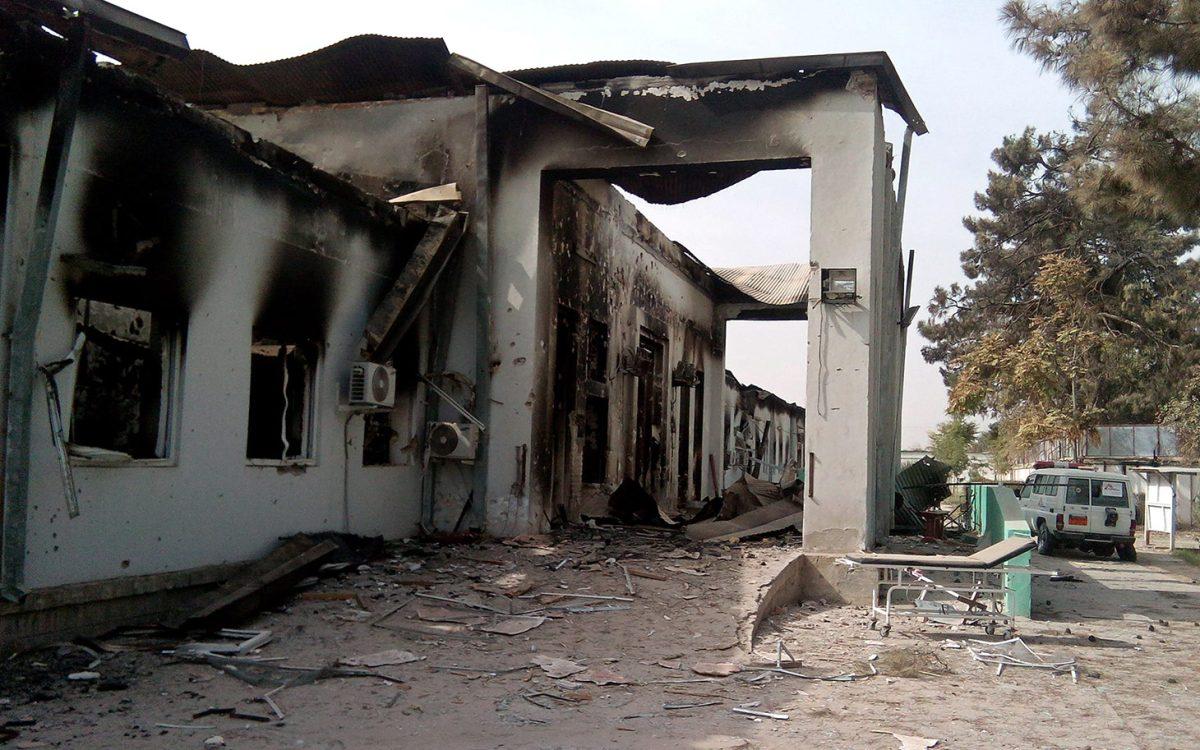Earlier last month, nineteen people, including three children, were killed in an aerial attack by the U.S. forces that caused significant damage to a Médecins Sans Frontières (MSF) trauma center in Afghanistan. Almost forty individuals were injured by the attack — a cause for a reflection of U.S. war policies and attitudes towards the Middle East.
According to U.S. law, the strike on the hospital was completely legal. The Law of War Manual published in June, notes that “all property located in enemy territory is regarded as enemy property regardless of its ownership.” While the Manual does include an amnesty clause aimed at protecting civilian hospitals, the definition of a civilian hospital is vague. Therefore, whether or not the MSF should have been provided protection remains unclear. Additionally, the policy specifically states that civilian hospitals should not be “close to military objectives” — an ambiguous requirement that allows the American government to sidestep legal accusations due to the hospital’s placement. The MSF hospital had previously provided its coordinates to the U.S. military to avoid harm, but there is no quantitative definition of “close.” The U.S. military has argued that the attack was “necessity of war,” perhaps because they were attempting to gather information on terrorists. However, because the hospital didn’t fall under military protection guidelines due to the hospital’s proximity to U.S. military targets, the destruction of lives was legally permissible according to the U.S. government.
Over the past several decades, war has become less clear than it once was. With the rise of terrorism and civilian participation in combat, the act of identifying who may pose a threat has become complicated. Troops may legally be ordered to endanger civilians or civilian property in order to identify terrorists and specific targets; as of January 2015, over 26,000 civilians died as a result of direct targeting techniques.
Additionally, the American public has become accustomed to serial worldwide violence. Waging Nonviolence, a nonviolence-oriented news media outlet, holds that this American apathy is in part due to decline in the number of American deaths from overseas conflicts, while the death of civilians in American-involved conflicts continues to rise. Through their policies, Americans seem to value the lives of their citizens over innocent lives elsewhere.
The apathy of the American public has allowed for policies that permit attacks such as these. American’s physical and emotional removal from war results in the promotion of policies, as well as politicians that are unphased by civilian deaths. In the past, hollow excuses and justifications facilitated by governments solely for political gain, have been the only response to actions similar to this airstrike. Perhaps this time, the American people, if they are upset by this incidence, should exercise their rights as citizens of a democracy and contact their representatives about their government’s policies. Additionally, lawmakers should carefully review international policies of war and consciously reflect upon the consequences of such policies. The military should investigate how to best conduct policies with a little loss of life possible.
One of the best cases in recent American history of civilian apathy and governmental malpractice is the case of Saddam Hussein. In the 1980s, in response to a developing Iranian revolution, the U.S. military provided Hussein with finances and weapons to bolster the Iraqi state. Hussein later used these same weapons to harm civilians in Iraq and Iran, and help fund terror attacks against the U.S. Citizens should be aware of cases such as these to consider the potentially traumatic consequences of U.S. foreign policy.
Though the MSF strike was permissible by U.S. policy, it may have violated international humanitarian law. According the the UN Universal Declaration of Human Rights, everyone has the right to life and no state should seek the “destruction of any of the rights and freedoms” set forth by the Declaration. Under the incredibly vague International Bill of Human Rights, the U.S. government may be penalized for the event. Suffice to say that as Wellesley College students, we should seek education about issues such as these and ensure that we are not insensitive to the loss of innocent lives.




